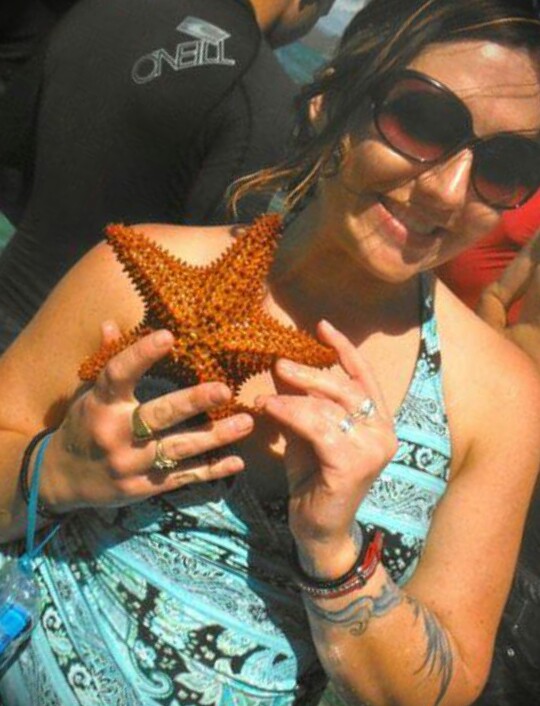
Jesy Hansen has always had an interest in nature, but believes her interest in natural resources sparked while she was still in high school. “We had to do a water sample project. It was fun,” she said. “I liked getting dirty and doing something productive at the same time.”
That fun water sample project left embers in Hansen’s mind, though it would take her some time to fan her passion into flame. Following a path that took her from her native Nebraska to Arizona, New Mexico, Texas, and Nevada, rising senior Jesy Hansen ultimately landed on studies at SNR.
“I chose to go to UNL because it is big enough to be recognized,” Hansen explained. “But I like SNR because there is a great sense of community and it is small enough that you feel like your voice really matters.”
Hansen’s community within SNR is quite large. She is working on triple-majors in Environmental Studies, Water Science, and Environmental Restoration with a minor in Agribusiness Entrepreneurship. In addition to her class work, she works in the Water Science Lab, participates in Sustain UNL and Garden Gang, founded the Collegiate Farm Bureau, and acts as an ambassador for both SNR and the Lancaster County Farm Bureau.
“A lot of people see a conflict of interest between Environmental Studies and agricultural concerns,” said Hansen. “But it’s important to find the common ground between these groups.” That’s why Hansen wanted to play a role in starting the Collegiate Farm Bureau, to help students stay up-to-date on current agricultural policies and to raise awareness about the importance of agricultural and natural resources.
Hansen first recognized the sometimes-challenging overlap between environmental concerns and agriculture while growing up on a farm north of Lincoln. “My family’s farm had a protected wetland,” she said, “and faced a lot of problems with the Salt Creek Tiger Beetle—an endangered species. I saw the challenges on both sides of the fence because of the environmental policy.”
Later down the road, Hansen became more aware of the benefits of environmental programs. While living in Alamogordo, NM, she saw the water level drop several inches in one year. “People had huge lawns that they would water every day—even when there were regulations against watering.” She said that watching people act like they didn’t live in a desert really helped solidify her interest in studying water resources.
“A lot of people are ignorant about their water use,” she said. “People want to adapt nature to themselves instead of adapting to nature.”
Helping people adapt to nature’s concerns while they make a living is part of what drives Jesy Hansen through her studies. She will soon start a UCARE project examining how fruits and vegetables absorb the pharmaceutical drugs that cycle through Lincoln’s wastewater. She hopes to use this project to springboard into a graduate career focused on research. Ultimately, Hansen hopes to have a consulting business while working as a professor at SNR.
“I want to do research and then share that research with people,” Hansen explained, “I have a life-long love of learning and want to make a difference in my community.”
Whenever she’s not working, studying, and leading clubs, Jesy Hansen spends as much time as possible with her “awesome” four-year-old son, Axyl. “He’s my little scientist,” Hansen said with a bright smile. “He loves to visit the clubs that I’m in, though he likes to have his ‘college friends’ attention. It’s nice that they welcome him in.”
Hansen recommends that any students who are undecided about what they want to do should come to SNR. “There is a lot of diversity in SNR,” she said. “You learn about natural resources, of course, but you also learn about business and science. A lot of classes tie into each other and give you an outlook on other topics, too. Natural resources really tie into every aspect of life.”
A good example of this is the Pinnacle Bank Arena Funding Project that Hansen worked on last spring to research the most economical way for the new arena to maintain a sustainability program. Hansen and a small group of students worked directly with the Joint Public Agency and the mayor’s office to suggest the best recycling and composting management plan to implement for the Pinnacle Bank Arena. “Being a SNR student has allowed me to have hands-on experience in many facets of the community, whether it is working with people and businesses directly or going out and doing field work for research.”
Perhaps the best way to sum up Jesy Hansen’s thoughts on SNR: “There are a lot of good opportunities here,” she said.
“If you feel like people are going to listen and take action, you’ll give your all and then you can truly make a difference.”
We at SNR can’t wait to see more of the great differences you will make, Jesy.